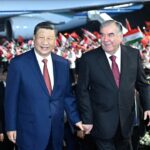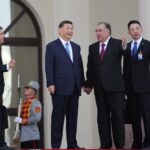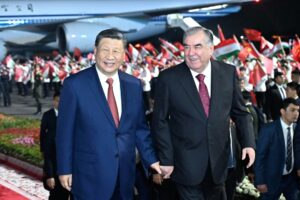Unusually pale and with unusually deep circles under his eyes, the Turkish President announced the date for the next elections in the country on Friday . Recep Tayyip Erdoğan ‘s speech was also rather colorless this time. He is otherwise an energetic and charismatic speaker.
For him, everything is at stake in the elections scheduled for May 14. More than 64 million people in the country will then vote on a new parliament and president. For two decades, Erdoğan has won every election he has contested. This time he and his party, the AKP, can no longer be sure of victory. The challenger, Kemal Kılıçdaroğlu , has become a strong opponent. All major opposition parties support him. The population is divided. Opinion polls predict a close race.
There are still a good 60 days until the appointment. Normally, the elections would not take place until June. But because there are holidays, Erdoğan wanted to postpone them . Critics from the opposition see a different reason: if he were to run in June, it would be his third candidacy for the highest office in the country. But the constitution forbids that.
The Turkish regent would probably prefer it if there were no elections at all. He can’t afford to lose. The presidency is his life’s work. To save that, he needs a good strategy. Turkish nationalism has often proved its worth in the past. But the opposition alliance, an alliance of six parties that could hardly be more different, has been relying on this for months. Some ultra-nationalists have already defected.
Cooperation with sects has so far been reliable for the Islamic conservative Erdoğan. But even there it seems to be stuck. Because of the crisis management after the earthquake disaster in early February in the south-east of the country, the president is under pressure nationwide. He apologized in one of eleven affected provinces: “We were not able to carry out the rescue work as requested in the first few days,” he said recently during a visit to Adıyaman. Erdoğan then used a Muslim excuse. Adıyaman is considered the home of an influential sect.
gifts for the public
Another classic strategy of Erdoğan is hidden gifts of money to the population in legal reforms. Most recently, he pushed through a new early retirement scheme. More than two million people should benefit from it. On the other hand, the pension for many Turks, just like the minimum wage raised by Erdoğan a few months ago, is barely enough to cover everyday life. Inflation has been in the high double digits for months, and while wages are rising, prices are rising much faster. In Istanbul, around 2,000 butchers are preparing for a week-long closure. The chairman of the chamber complained in a recent interview that meat prices have increased about twice a week since the earthquake.
In general, the earthquakes are likely to significantly impede Erdoğan’s strategy of buying happiness . According to the United Nations, the damage amounts to more than 100 billion US dollars. That is about one eighth of the entire gross domestic product. Saudi Arabia recently transferred five billion US dollars to the Turkish central bank. With such payments, however, Turkey is also making itself somewhat dependent on the donors. Eventually, the bill could follow.
So far, Erdoğan has not wanted to request any help from the International Monetary Fund. Instead, a few days ago, he personally distributed banknotes to children in the earthquake area. The problem: Most of the shops in the region have long been empty, damaged and closed.
The same applies to public buildings in which elections are held under normal conditions. Turkey’s High Electoral Council will have to come up with a solution in the coming days. It is also unclear how the election of the three million Turks who have left the region will be organized. The Turkish state is technically well equipped and usually knows who is where in the country. But that doesn’t mean that everyone can vote, says political scientist and expert on the Turkish electoral system, Ersin Kalaycıoğlu, from Istanbul’s Sabancı University: “Voters should insist very stubbornly on being registered,” says the expert. Voting by people who have long since died, or missing ballot papers for the opposition – these are just two examples all of which are also documented in reports such as those by the OSCE. “We haven’t had democratic elections for a long time,” says Kalaycıoğlu.
Source: zeit















